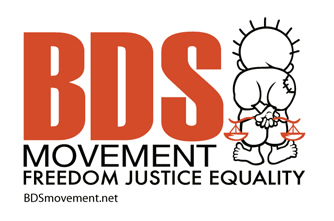The Boycott, Divestment, and Sanctions (BDS) movement, initiated by Palestinian civil society in 2005, has emerged as one of the most impactful grassroots campaigns of the 21st century. Rooted in the principles of freedom, justice, and equality, BDS seeks to pressure Israel to comply with international law and cease its occupation, colonization, and apartheid policies against the Palestinian people.
A Nonviolent Response to Prolonged Injustice
For over 75 years, Palestinians have endured land dispossession, military occupation, systemic discrimination, and forced displacement. Despite clear violations of international law, Israel continues its expansionist policies with the backing of powerful allies and corporate interests. In response, 170 Palestinian organizations—including unions, women’s groups, political parties, and refugee networks—launched the BDS call, demanding:
- An end to the occupation and colonization of all Arab lands and dismantling of the apartheid wall.
- Equal rights for Palestinian citizens of Israel.
- The right of return for Palestinian refugees in accordance with UN Resolution 194.
These demands are not rooted in revenge or violence—they are grounded in international legal norms and inspired by the South African anti-apartheid movement.
How the BDS Movement Gained Global Momentum
What began as a regional act of resistance has grown into a powerful international campaign supported by trade unions, academic bodies, churches, civil rights groups, artists, and activists across continents. The BDS movement has strategically focused on three areas:
- Boycotts: Targeting Israeli and international companies complicit in human rights violations, and withdrawing support from Israeli cultural and academic institutions that normalize occupation.
- Divestment: Encouraging financial institutions, pension funds, universities, and faith-based organizations to divest from corporations that profit from the occupation.
- Sanctions: Demanding governments hold Israel accountable by ending military trade, suspending bilateral agreements, and expelling Israel from international forums like FIFA and the UN.
Challenging War Mongers and Zionist Funders
The BDS movement has exposed and challenged a vast global network of war profiteers and Zionist funders who support Israel’s militarized apartheid regime. Many of these entities benefit from arms sales, surveillance technologies, and settlement construction. From U.S. weapons manufacturers to multinational tech firms, these players are being held to account in campaigns worldwide.
Activists have launched successful campaigns that led to:
- Companies like Veolia and G4S pulling out of Israeli contracts.
- Artists and musicians like Roger Waters, Lauryn Hill, and Lorde cancelling performances in Israel.
- Major academic and cultural institutions openly debating or adopting BDS resolutions.
- Pension funds and churches divesting billions of dollars from companies operating in illegal settlements.
Through public shaming, direct action, and legal pressure, BDS has disrupted the normalization of Israeli apartheid and unmasked the global complicity in the oppression of Palestinians.
The Smear Campaign and the Movement’s Resilience
Despite widespread support, BDS has faced intense backlash from pro-Israel lobbies, Zionist institutions, and complicit governments. Accusations of antisemitism are often weaponized to silence BDS supporters, despite the movement’s clear stance against all forms of racism, including antisemitism and Islamophobia. This has led to legal battles, censorship, and even blacklisting of BDS activists.
Yet, the resilience of BDS lies in its decentralized, citizen-led nature. From student protests in North America to trade union actions in Europe and solidarity marches in South Africa and Asia, BDS has proven impossible to suppress.
A Human Rights Movement with Moral Authority
BDS is not just a campaign against Israel’s policies—it’s a movement of conscience, a call to humanity to stand on the right side of history. Its strength lies in its alignment with universal values of justice and its ability to mobilize millions against a system of occupation, colonization, and apartheid.
As war mongers and Zionist funders continue to entrench injustice through wealth and weaponry, the BDS movement offers an alternative path—one of peaceful resistance, collective pressure, and moral clarity.
Conclusion: Global Solidarity is Growing
The expanding reach and influence of BDS is a direct challenge to imperial power and corporate complicity. It represents the voice of the voiceless, calling for accountability, equality, and dignity for all Palestinians. As the world grows more aware of the ongoing injustice, BDS serves as a rallying point for those who believe that justice for Palestine is inseparable from global peace and freedom.
To support BDS is to say no to apartheid. To divest is to oppose occupation. To sanction is to reject complicity. The movement’s growing success is a testament to the power of collective global action—and a warning to oppressors that the tide of history is turning.

